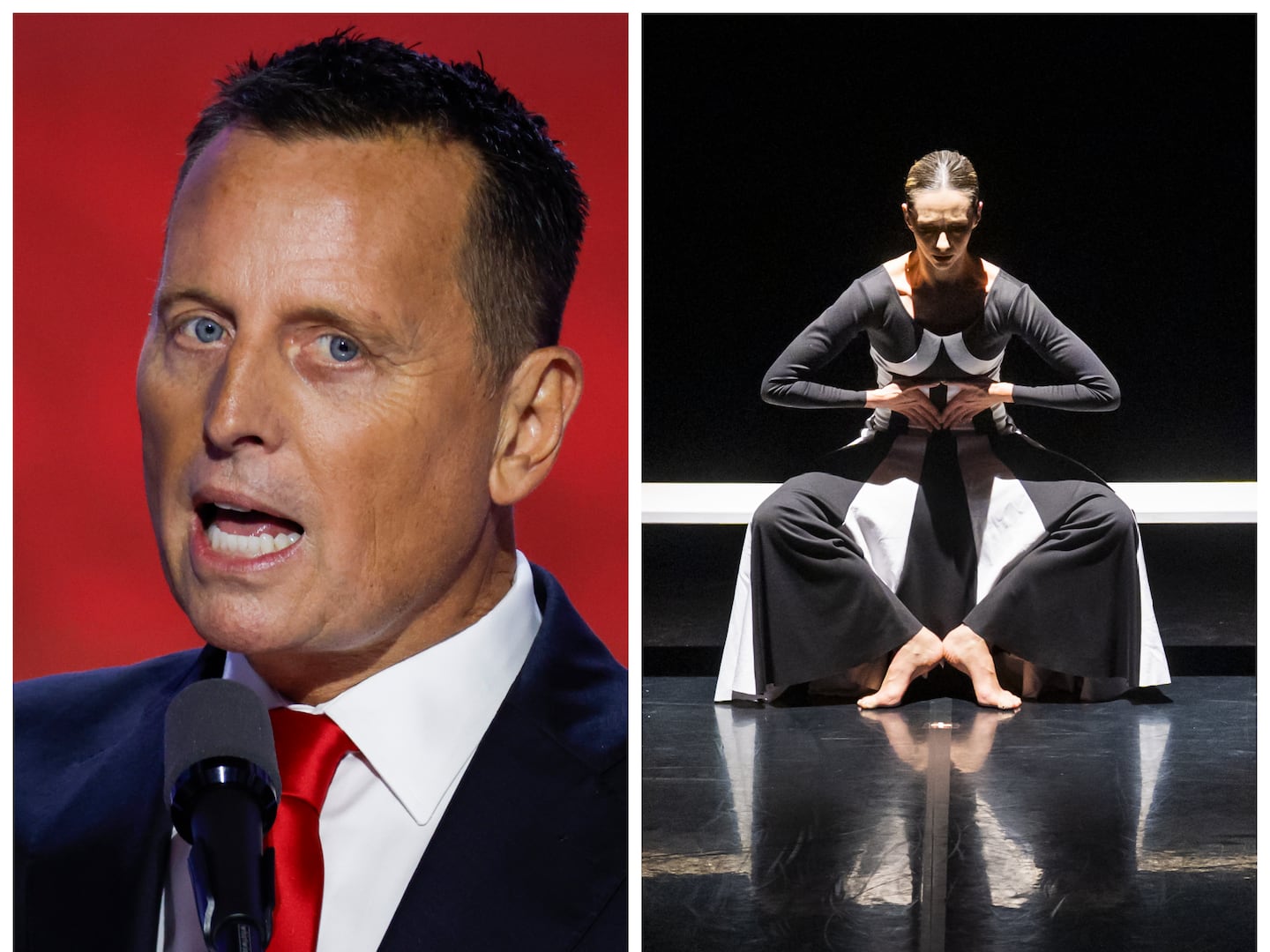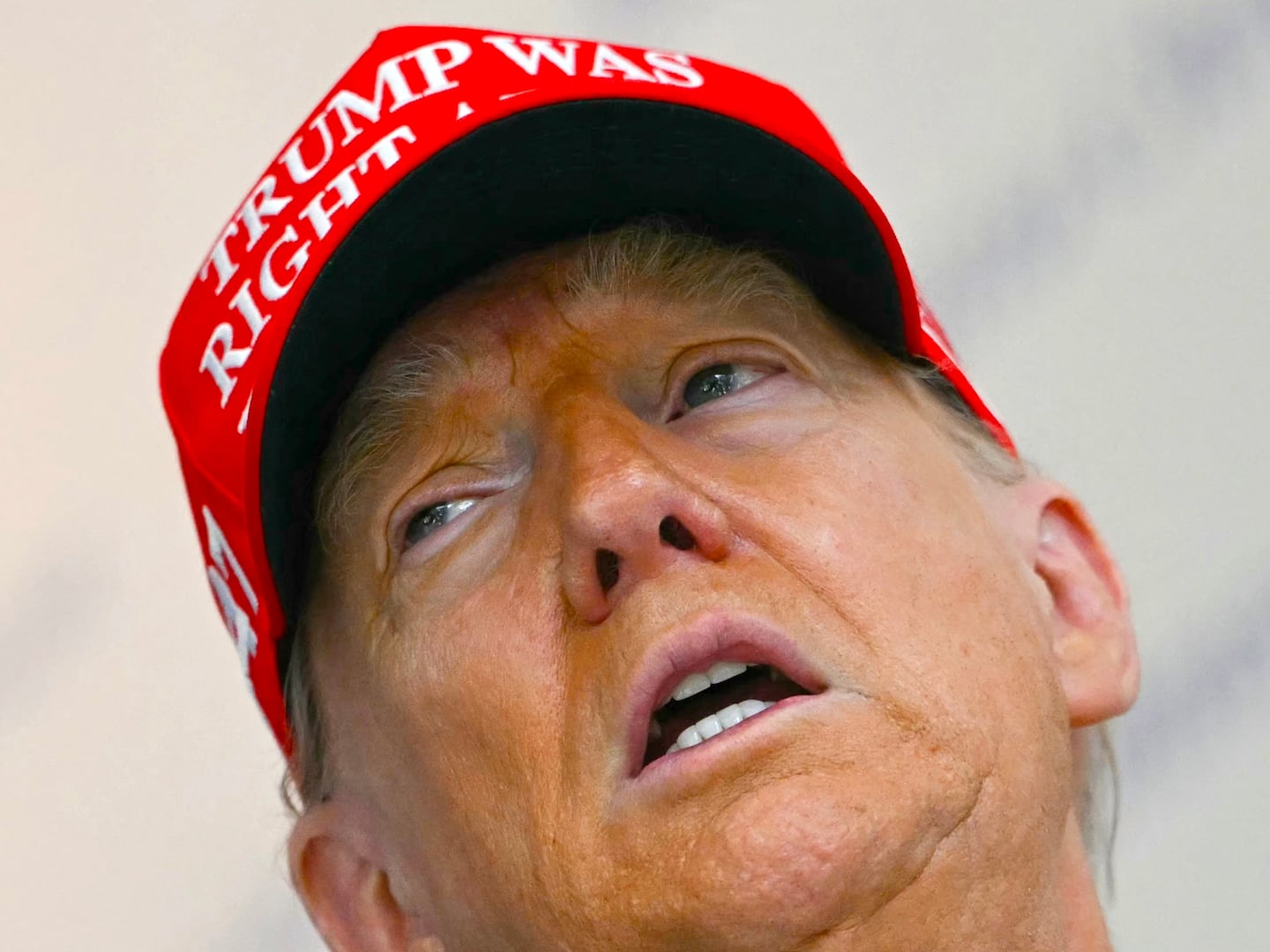“My senior year I was pulled over like eleven times. Every time you think that’s it, you could be dead,” actor Jay Ellis says.
Ellis is talking about the real-life inspiration for the latest episode of HBO’s Insecure, where his character Lawrence Walker gets pulled over by the police for making an illegal U-turn. Lawrence’s fear mirrors that of most black Americans when they’re faced with so-called routine traffic stops—the news is awash with the stories of men and women, like beloved school cafeteria supervisor Philando Castile, who’ve been shot and killed by police. He immediately switches the radio to classical music and preps himself for a tense exchange. “Is this your car?” one of the cops rudely asks. Lucky for Lawrence, his only reprieve is his Georgetown University license plate, which causes the cop to lighten up.
For Insecure, it’s a powerful moment precisely because of how the scene is plopped into an episode that has nothing to do with police brutality. The series is a comedy, yes, but it’s also truthful in how it represents the black experience, and interactions with police aren’t always a “very special episode”—they’re often just a way of life.
It’s this verisimilitude that makes Insecure feel so necessary. Issa Rae’s show is more born out of the Obama era than Trump’s, and its depiction of black life is necessary and refreshing. But even if it might seem like Obama is still in office on Insecure, Ellis says, “Give us a few seasons, we’ll probably start dealing with today’s politics.”
Looming over our chat was this past weekend’s neo-Nazi-led demonstration in Charlottesville, Virginia, that claimed the life of an innocent young woman, Heather Heyer. “It was shocking, but not that shocking that this happened,” Ellis says, explaining that the situation in Charlottesville wasn’t anything new to him.
Ellis’ dad was in the Air Force so their family moved around often during his formative years, but ultimately settled in Tulsa, Oklahoma. “You can feel a lot of that history still there,” Ellis says, referring to the Tulsa Race Riots of 1921, where a mob of white people descended on the black community of Greenwood, attacking businesses and residents. Describing his interactions with men like the ones in Charlottesville, Ellis offers, “You could still see KKK marches there. You could see them on the way to prom. There were Klan rallies even in like, 1996. Tulsa has healed, but that KKK and racist history is still here in America. People say they don’t know what they voted for…but they did. It’s sad that this still exists in America.”
Flashes of this stark divide appear in Insecure’s most recent episode, where we jump from two white cops sizing up Lawrence as an imminent threat to two women, one white and one Asian, who size him up as a sexual conquest. The women seduce Lawrence, taking him back to their place for a threesome, where he’s treated to the white woman suddenly shouting, “Your black cock feels so good in my white pussy!” mid-sex, and her Asian accomplice disappointed when he orgasms early: “We’ve been with a bunch of other black guys that can cum and keep going,” she huffs. The episode demonstrates the fetishization of black male bodies from two different POVs—those who fear it and those who sexualize it. It’s a huge episode for Ellis, and one of the most honest depictions of being a black man in America that’s been captured on television.
I sat down with Ellis at a restaurant in West Hollywood a couple of days after the episode aired to talk about his big episode (over avocado toast like true Angelenos). Ellis says it was serendipitous that he was able to watch the episode with a huge group of fans. He happened to be in New York this past weekend and when he arrived at his hotel, the Arlo SoHo, he found out they hosted a weekly screening of Game of Thrones. He asked the concierge, “You just turn it off after Game of Thrones, you don’t watch any other show?” When she said no, Ellis laughed and flashed a smile, only to have a random black guy in the lobby intervene: Oh, you done fucked up now! “[The concierge] was like, ‘Oh no, what I did I do?’ and he was like, ‘Yo, he’s on Insecure, it comes on after Game of Thrones!’” The concierge told Ellis they’d keep the TV on so he could watch Insecure, but he said he’d do them one better and tweeted out to fans that they could come down to the hotel screening room and watch the show with him.
“Around 400 people showed up, it was absolutely insane,” he recalls. “I stayed up till 2 a.m. taking photos with fans.”
For Ellis, interacting with the show’s fans has been especially rewarding given how vocal they are online. Many divide themselves between #IssaHive and #LawrenceHive, picking sides in the messy breakup between the two at the end of the first season. Isaa fans claim that Lawrence deserved to be dumped for remaining unemployed and aimless, contributing to the stress in their relationship. Lawrence fans claim it’s all Issa’s fault for cheating. “I tend to stay offline so I never know how people are reacting,” Ellis says.
At first, he thought the episode “Hella L.A.” was going to be a win for the #LawrenceHive: “My buddy [the rapper] Wale stopped by the writers’ room when they were breaking the story.” Wale, who’s friends with creator Issa Rae as well, discovered there was a threesome in the episode and immediately texted Ellis “banana emoji banana emoji banana emoji exclamation point exclamation point.” Meaning of course, the episode was about to be bananas. Ellis was pumped for his episode—until he got the script and realized that Wale only knew about the threesome part and not the racial fetishism twist at the end. “Watching that with the fans was wild,” Ellis said. “I didn’t even remember which episode it was until I saw the grocery store scene and was like, shit…should I have invited all these people?”
So Lawrence ends up taking an L in the episode, but Ellis is fine with it. He’s just glad to be on the show. At the end of the first season, when Issa and Lawrence break up and Lawrence turns around and bangs bank teller Tasha, Ellis says, “I remember being in my trailer screaming, ‘Issa!’ I went on set and asked one of the producers, ‘Yo, I’m fine, right? I don’t want to have to look for another job.’” He was assured that Lawrence would be sticking around, despite the breakup. “I didn’t want to end up like Aidan [from Sex and the City],” Ellis says, laughing.
Keeping Lawrence around has only made the series more popular. Insecure’s ratings have tripled, and the show regularly trends online on Sunday nights—with its diehard fans often battling over whether or not Issa or Lawrence is winning post-breakup. “I got sent a bunch of memes after the episode,” Ellis says. “Like the one of Eddie Murphy in bed from Boomerang.”
While many of the episodes stem from real-life incidents experienced by its writers and actors, Ellis says that the threesome and the white and Asian girl salivating over his “black cock” were completely foreign to him. “I’ve never experienced that!” Ellis insists. Being fetishized for being a black male creeps out Lawrence, but he still ends up having sex with the girls. It’s led some of the show’s fans to wonder if Lawrence is too bougie because of his upbringing and tech job, and if he felt more comfortable with the whiteness of that situation than, for instance, the cookout with Tasha’s family that led to their split. “It had nothing to do with the family or Lawrence not being comfortable there,” Ellis says. “It was the familiarity. Too soon, too fast. Lawrence was just getting over a breakup and the domesticity was too much…you know, getting invited to the cookout, Tasha wanting to watch TGIT instead of having sex.” Ellis asserted that the writers are “very deliberate” and if they wanted viewers to think Lawrence thought he was above Tasha’s family “they would have shown that.”
Lawrence’s bougie-ness isn’t the only thing fans have been vocal about when it comes to his sex life. Recently, Rae responded to criticisms that she wasn’t including scenes of characters using condoms in the series. Ellis says that condoms were actually involved in the threesome scene (and Rae confirmed this by sharing screenshots of Magnum wrappers on the nightstand in the background, and tweeting: “We tend to place condoms in the backgrounds of scenes or imply them. But we hear you guys and will do better next season.”), but commended Rae on her response. “It’s why I appreciate Issa as a boss and a creator. She responded with: ‘I hear you. We’ll do better,’” Ellis says.
He also pointed out, however, that a perceived lack of condoms is due to the fact that the show doesn’t depict every aspect of sexual intercourse. “You have to remember that with sex scenes, it’s always a time jump. You don’t see everything that happens before and everything that happens after, except for that time Lawrence and Issa had sex this season. So you’re not always seeing the beginning part—you jump right to the sex. But I’m all about promoting safe sex in our community [Ellis works extensively with amfAR, The Foundation for Aids Research]. It’s important to put that message out there.”
I also point out that, when it comes to the sex scenes, some women want to see more oral sex. “In that threesome Hayley [Kiyoko, one of the actresses] sat on my face!” Ellis exclaims. “Twitter said they need more than five seconds,” I say. Ellis laughs. “Alright. I’m sure next season you’ll see more condoms and my head between every woman’s legs.”






